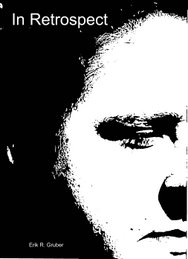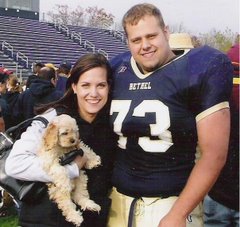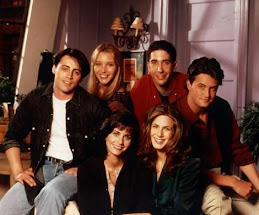It’s interesting living in a metropolitan area of a progressive state, especially with the 2008 presidential elections presenting the possibility of either a female or African American nominee. Since the outset of the initial fundraising efforts I’ve taken for granted that US citizens would be ready to vote for Hillary Clinton or Barack Obama. Putting political parties aside, I’ve assumed that we’ve moved forward as a society to a point where we would look past gender or race to fairly assess the qualifications and leadership abilities of a candidate (again, not necessarily endorsing either one).
But I’d like to take you all to a place called Jena, Louisiana. This town of 3,000, located in the middle of the state, has a long and violent history of racial tension and segregation which has only risen in intensity over the last year following a string of racially motivated crimes.
It all started with a tree.
At Jena High School black and white students don’t associate with each other. While socializing at school, the white students gather under a big shade tree in the courtyard, the black students by the auditorium.
Or so it was, until last year, when an impetuous African American freshman challenged this status quo just a few days into the first semester by asking the principal at a school-wide assembly if he, too, could sit under the tree, and was told that he had the right to sit anywhere he wished.
Members of Jena High’s rodeo team didn’t see it that way, and the next morning three nooses hung from the tree. Many wanted the perpetrators arrested, expelled. Technically this was a terroristic threat and would qualify as a hate crime. Officials decided it was a prank and the “jokesters” received in-school suspension.
A group of African American athletes organized a silent protest, defiantly gathering under the tree until a school assembly was called. The police and the district attorney were brought in. DA Reed Walters warned students that he “could be their friend or worst enemy.” “With one stroke of my pen,” he reportedly said “I can make your life disappear.”
African American students felt he was speaking directly to them (a point of debate amongst those in attendance). White students felt triumphant, black students resentful.
On November 30 somebody started Jena High on fire. Everyone was pointing fingers. Fights began to erupt throughout the city. 16-year-old African American Robert Bailey was jumped at a mostly white party. The next day, at a local convenience store, Bailey exchanged heated words with a white classmate who had been at the party. The white student went to his truck and pulled out a shotgun. Bailey and his friends wrestled the weapon away from him and brought it home. They were charged with theft of a firearm, second-degree robbery and disturbing the peace. The white student wasn’t charged (inarguably absurd).
The following Monday, white student Justin Barker was spreading the word at school that Bailey had been “whipped by a white man.” When he walked outside, into the courtyard, he was jumped and beaten by a group of black students.
Barker’s injuries were minor. He was examined by doctors and released, going on to attend a social function that very night.
But six African American students were arrested and charged with attempted second-degree murder. The first to go to trial was Mychal Bell. He’s facing 22 years in prison. The rest are awaiting trial.
I don’t condone violence or retaliation. The six African American Jena High students were absolutely wrong to beat Justin Barker and they need to be held accountable for their actions (I think the attempted second-degree murder charge is pretty extreme, however). But so do the white students who jumped Robert Bailey and the white student who pulled a gun on him. So do the white students who hung the nooses, painfully reminding a southern town of its still visible scars; marks left by years of hatred and fear.
Living in the north, it’s easy to forget that places like Jena exist; that there are still towns where deep racial divides permeate the culture and rot any hope for reconciliation or mutual respect before they ever have an opportunity to take root.
Maybe the US isn’t as progressive as I thought (or hoped).
Thanks for reading.
Zizzle-Zot will be in Disney World for the next few days. He’ll be back on Tuesday. Until then…
Wednesday, August 29, 2007
Subscribe to:
Post Comments (Atom)


















7 comments:
As I gear up for a departure to LA to study cross-cultural issues in America I have become more conscious of racial issues around me. I think you've hit the nail on the head with this article Zot.
The problem racially these days is that many in our circles (white prosperous young folk) is that it doesn't hit is in a blatant manner. Without violent race confrontations of the civil rights era in our face we tend to forget there are still strongholds that our in tact. It is easy for us to think that racism is a thing of the past or mostly disintegrated. But think Zot readers, do you have many or any friends of other race or culture? Without blatant confrontations, we won't see its strongholds.
But did you know, 60 percent of whites over 30 own their own homes, yet less than 30 percent of blacks do not? (taken from a sermon from Woodland Hills Church (Greg Boyd)) (As most Zot readers are Christian white men I write to our situation) Did you know that the church is the most segregated institution in America? Is it because American Christians are racists? I don't think so. It is the American cultural structures of the past still in tact. We think to ourselves, "I'm not a racist. If I don't act racist and no one I know is a racist, racism must not exist." But why do we segregate structually? It is those structures that are still in tact. We must (especially in the church) do our part to tear down those walls of structural racism in a proactive manner. Just because we don't act racist doesn't mean that it doesn't exist.
So how do we break down strucutral racism? We must make it a point to not just peacefully coexist, but befriend, love, and get know people of other cultures. Not proactively breaking down these structures doesn't make us guilty of injustice, but it does make us guilty of letting it injustice occur untouched.
An MLK Jr. quotation comes to mind in this situation. "He who passively accepts evil is as much involved in it as he who helps to perpetrate it. He who accepts evil without protesting against it is really cooperating with it."
We must accept it as our responsibility as Christians to break down racial injustice in America. As Paul writes, "You are all sons of God through faith in Christ Jesus, 27for all of you who were baptized into Christ have clothed yourselves with Christ. 28There is neither Jew nor Greek, slave nor free, male nor female, for you are all one in Christ Jesus. 29If you belong to Christ, then you are Abraham's seed, and heirs according to the promise." Galatians 3:26-29.
There is no place for segregation or culutral structures in Christ.
So Zot, to reflect on your title "How Far We've Come," I would argue that we have come substantially far since slavery and the civil rights era in America, but we must finish the task. The journey is not over. We must keep on the road for in Christ there is no room for racial structures.
Is America ready for Obama? Clinton? I hope we've come far enough that race or sex is not a determining factor, but judging by what your article, I think it still is.
Wow cassel, that is a lot of writing w/o paragraph breaks. It was still easy to understand though.
I think i saw that story that Groobs wrote about on dateline or something. It is an amazing story. It is sad that a story like that can even be possible today.
I don't have much more to add to what cassel had to say other that one point i wanted to talk about.
That is segregation on Sunday morning. I don't think this really has anything to do with the people that attend the churches as much as it is just happenstance. Whites tend to live in the suburbs and blacks tend to live inner city (I know there is a lot of discussion just on that point, but I will not get into that). The point i am making is that people tend to go to the churches close to where the live. If they don't do that, then they find the closest to their beliefs, and if not that then the churches closest to there culture, and if not that they go to where they know people.
These are the top reasons in my opinion anyway. I never understood why there are some people that try and push so much for people to integrate churches. What good is it going to do to force things like that to happen? If it happens on its own, that's cool. If not, that should be cool too. Yeah, the Bible says there should be no segregation, but it isn't segregation if anyone and everyone is accepted and welcome.
I don't know, just some rambles from corcs. Maybe i can draw a response back from someone.
Have fun in Florida groobs! I'll miss your posts.
Comment on the poll...
Most of my favorite shows aren't even on there. What kind of poll is this?
GI Joe's?
Tranformers?
Captain Planet?
TMNT?
I'm voting for Transformers for my #1.
I always preferred reading books over watching cartoons.
Sorry...looks like i'll have to site this one out
Site is Sit in a language that i just made up...sorry for the confusion Pat!
In regards to P corcs... First, you are a cutester! Second, I realize that I brought in a completely new issue on to Zot's article. I prefaced that in my response. You are right. Second of all, in regards to your response on why people attend churches the way they do. I agree with your reasoning for why people attend churches the way they do. I don't think they are doing something with ill intent in choosing church based on location and belief. But I would argue that choosing a church based on one's own convenience is not good enough. If we learn anything from the Gospels, we learn that Jesus was about building the kingdom that looked a certain way and was working hard, traveling around to build it. Now, if these churches were only defined by Christ there would be no problem. But most churches in America are defined by race, and race defines economic status, and economic status defines privilege. These are not Kingdom definitions. They are American socially structured definition. Hence, we have a problem. A problem that may inconvenience our sunday morning endevours. But the kingdom may ask us to do inconvenient things. It's part of the deal.
On a different note.... Can't wait to see you guys this weekend (naked).
PS P Corcs- Let me know what you think. I'm interested in your response to this.
I hear what your saying loud and clear Brother Late night and I don't necessarily disagree with it. That being said, I do have a couple responses to some of your thoughts.
When I read the gospels I see Jesus going to the people and helping the set up a church where they are, the same with Paul and the apostle after Jesus was gone. Granted travel back then wasn't like it is now, ten miles then is like 100 hundred to us now. The point being I believe the emphasis was on accepting those around you and welcoming everyone whether they were slave, man, woman, whatever. So in that sense I think church was defined by geoligical area, much as it is today.
With that said I think from there we arrive at society defining who attends a specific church, not the Church defining where one is located in society. If I am understanding what you said correctly:
"But most churches in America are defined by race, and race defines economic status, and economic status defines privilege."
I am a firm believer of helping yourself, not waiting for others to help you. I know a lot of other races have less oportunity than we have been privilaged with, but they still have opportunity. If they wanted to strive to move up the class line they could. If they wanted to move to a suburban area, they could. Yes, there might be more obstacles than what a typical white person would face, but it can happen.
Anyway, my point being, if areas became more integrated because people desired the life style of a "Suburb" or desired to move further from the cities, we would see the same integration into the churches. (It would also work with Whites moving to the inner cities). Therefore segregation on Sunday Morning is a result of society and ones comfort rather than Starting at the Church and defining society from there.
I agree with you that we as Christians are called to live a life with "inconvienences" but I believe that there are many other things out there that we should be putting our time, effort, and money to than worrying about the percentages of certain races that attend specific churches.
This was just one of the things that I didn't understand why so much emphasis was put on at Bethel. I suppose it was because we were a vast white college. Maybe I just got a different experience because I had quite a few classes on this stuff.
I guess I have just never had a good reason presented to me why I should concern myself with this rather than things like world poverty and disease and genocide.
In conclusion like i said in the body, i believe that church segregation is changed as a result of society, not as a result of what the church does.
I hope you enjoyed my response, I am looking forward to hearing more from the infinate depth of the mind of late night!
Post a Comment